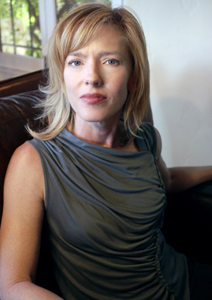
Johanna Blakley
USC Shoah Foundation’s Memory, Media and Technology: Exploring the Trajectories of Schindler’s List conference will welcome not just genocide, Holocaust and history scholars, but also experts in media and film. As panel moderator, Johanna Blakley is looking forward to the conference’s discussions of technology and digital communication.
As managing director and director fo research of the Norman Lear Center (a media-focused think tank at USC), Blakley explores how our entertainment interacts with our political, commercial, and social habits. She has produced for the web on a large scale, conducted gaming research, coordinated events for film festivals and executed consumer research on entertainment politics. She also lectures at USC and helped develop their master's program in Public Diplomacy. Currently, Blakley is the principal investigator on a research project that measures the impact of feature films and documentaries on the attitudes, knowledge, and behavior of the viewers.
The Social Engagements with Holocaust Remembrance in New Media panel will illustrate just three of the many fascinating ways scholars are looking at testimony in its various forms in order to study the mediation of Holocaust remembrance. Blakley said the panel is very “forward looking” as it will consider how testimony can be produced, received and studied in digital communication channels that are evolving very rapidly.
Blakley said she wanted to be involved in the Memory, Media and Technology conference because she’s been very impressed by the creative, interdisciplinary approaches that the USC Shoah Foundation has used to advance research on a very difficult topic.
“I’m a media scholar who studies the impact of media and so I couldn’t resist getting involved in a conference that honors a film that shaped an entire generation’s understanding of the Holocaust,” Blakley said. “A lot of my recent research has been on social media and so I’m excited to explore how these new technologies, and the valuable data they produce, can be leveraged by Holocaust scholars for research and by those who are looking for the most effective ways to disseminate Holocaust testimony.”
Though Blakley is not a genocide scholar by trade, she is confident that the conference’s combination of “cutting-edge technology and rich historical scholarship” will serve the field very well. She expects to come away with new insight into how audiovisual material is being used for specific audiences and outcomes.
“I believe that media is an extremely powerful tool for affecting social change and so I’m eager to discover new methods for harnessing the power of media and for studying the effects of media engagement and measuring its impact,” she said.